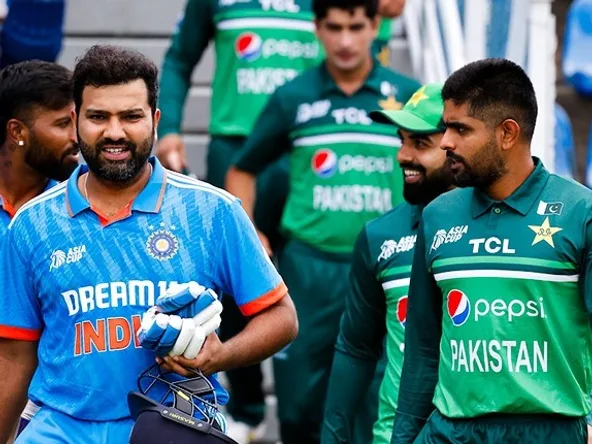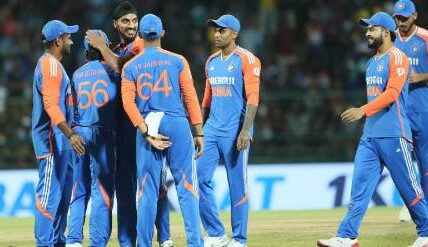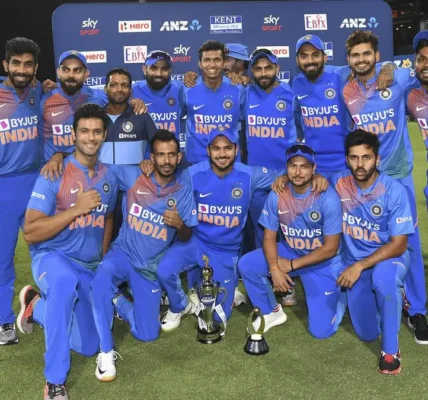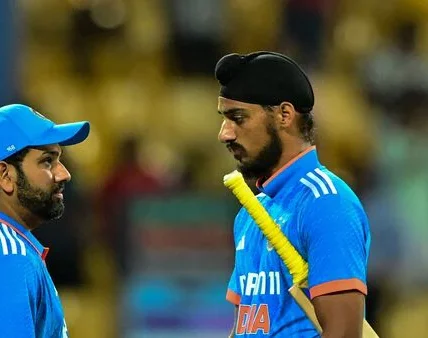- Homepage
- SPORTS NEWS
- In Pakistan’s Champions Trophy Proposal, A ‘Supplementary Charge’ Clause For Indian Team
In Pakistan’s Champions Trophy Proposal, A ‘Supplementary Charge’ Clause For Indian Team
Table of Contents
ToggleIn Pakistan’s Champions Trophy Proposal, A ‘Supplementary Charge’ Clause For Indian Team
Introduction
Cricket is more than just a sport in South Asia; it is a passion that binds millions. The Champions Trophy, one of the most prestigious tournaments in international cricket, has always been a spectacle of intense competition and unmatched excitement. Recently, Pakistan’s proposal for hosting the next Champions Trophy included a controversial ‘supplementary charge’ clause specifically targeting the Indian team. This move has not only stirred the cricketing world but also highlighted the ever-present political tensions between the two nations.
Overview of Pakistan’s Champions Trophy Proposal
Pakistan’s proposal for hosting the Champions Trophy is comprehensive and ambitious. It includes state-of-the-art facilities, security assurances, and an array of promotional activities aimed at making the event a grand success. However, the most talked-about aspect of the proposal is the ‘supplementary charge’ clause. This clause mandates an additional fee for the participation of the Indian cricket team, a move seen by many as both a financial strategy and a political statement.
The ‘Supplementary Charge’ Clause Explained
The ‘supplementary charge’ clause stipulates that the Indian cricket team must pay an extra fee to participate in the Champions Trophy hosted by Pakistan. The official rationale behind this clause is to cover the increased security and logistical costs associated with hosting a team from India, given the historical and ongoing tensions between the two countries.
Political Tensions Impacting Cricket
India and Pakistan share a tumultuous political history, which has inevitably spilled over into the realm of sports. Cricket matches between the two nations are often seen as proxy battles for national pride. The suspension of bilateral series, visa issues, and the overall strained relations have significantly impacted cricketing ties. The inclusion of the ‘supplementary charge’ clause is the latest manifestation of these broader geopolitical issues.
India’s Response to the Proposal
The Board of Control for Cricket in India (BCCI) has responded to Pakistan’s proposal with strong opposition. Official statements from the BCCI criticize the clause as an unfair and politically motivated move that undermines the spirit of the sport. Media reactions have been mixed, with some supporting the BCCI’s stance and others calling for a more diplomatic approach to resolve the issue.
Implications for the ICC
The International Cricket Council (ICC) finds itself in a precarious position, having to balance the interests of both nations while ensuring the smooth conduct of the tournament. The ICC has called for discussions to address the concerns raised by both parties. The possible outcomes range from amendments to the proposal, mediation between the two cricket boards, or, in the worst-case scenario, relocating the tournament.
Economic Impact of the ‘Supplementary Charge’
The financial implications of the ‘supplementary charge’ are significant. For the Indian team, it represents an additional financial burden. However, for Pakistan, it could mean substantial revenue, which could be reinvested into the country’s cricketing infrastructure. The clause is seen as a double-edged sword with both potential economic benefits and diplomatic repercussions.
Legal Aspects of the Clause
Legal experts have weighed in on the enforceability of the ‘supplementary charge’ clause. The main challenges lie in the ICC’s regulations and the broader legal framework governing international sports. While some believe that the clause could be legally contested, others argue that Pakistan, as the host nation, has the right to implement such measures under specific circumstances.
Comparative Analysis with Other Sports
This is not the first time political tensions have influenced sports. Similar cases can be found in football, the Olympics, and other international competitions. For instance, the tensions between the USA and Soviet Union during the Cold War often affected their sporting interactions. These examples provide valuable lessons on how to navigate the complex interplay between sports and politics.
Public Reaction and Social Media Buzz
The inclusion of the ‘supplementary charge’ clause has generated significant buzz on social media. Fans, analysts, and influencers are all weighing in, creating a diverse array of opinions. Hashtags related to the controversy are trending, and debates are raging across platforms like Twitter, Facebook, and Instagram. The general sentiment is a mix of outrage, support, and calls for a peaceful resolution.
Future of India-Pakistan Cricket
The future of cricket between India and Pakistan remains uncertain. While there is a strong desire among fans to see the two teams compete regularly, political hurdles continue to impede progress. Nonetheless, sports have the unique ability to foster dialogue and bridge divides. There is hope that cricket can serve as a conduit for improved relations between the two countries.
Impact on Players
The ongoing controversy undoubtedly affects the players. The psychological burden of playing under such tense conditions can impact performance and overall well-being. Current and former cricketers have expressed their concerns, emphasizing the need for sports to remain a platform for unity rather than division.
Media Coverage and Narrative
The media plays a crucial role in shaping public perception of the issue. Coverage has ranged from objective reporting to opinion pieces that reflect the polarized views on the matter. The narrative being constructed is one of conflict and potential reconciliation, highlighting the power of the media in influencing public discourse.
Possible Resolutions and Compromises
Experts suggest several potential solutions to the impasse. These include waiving the clause under specific conditions, having the ICC subsidize the charge, or finding a neutral venue for the tournament. Historical precedents, such as the diplomatic efforts during apartheid in South African sports, offer blueprints for resolving such issues.
Conclusion
The ‘supplementary charge’ clause in Pakistan’s Champions Trophy proposal has sparked a complex debate that intertwines sports, politics, and economics. While the clause aims to address legitimate security concerns, its implications extend far beyond the cricket field. The resolution of this issue will require diplomacy, negotiation, and a shared commitment to the spirit of the game. Ultimately, the hope is that cricket can rise above political strife and continue to unite fans across borders.
FAQs
What is the Champions Trophy?
The Champions Trophy is an international cricket tournament organized by the ICC, featuring the top eight teams in the world.
Why is the ‘Supplementary Charge’ clause controversial?
The clause is seen as a politically motivated move that imposes an additional financial burden on the Indian team, exacerbating existing tensions between India and Pakistan.
How has the BCCI responded to the proposal?
The BCCI has strongly opposed the clause, calling it unfair and undermining the spirit of cricket. They are seeking discussions with the ICC to address the issue.
What are the potential outcomes for the Champions Trophy?
Possible outcomes include amendments to the proposal, mediation between the cricket boards, or relocating the tournament to a neutral venue.
How can sports help in resolving political tensions?
Sports have the unique ability to bring people together and foster dialogue. By promoting sportsmanship and mutual respect, cricket and other sports can serve as a platform for diplomatic efforts and improved relations between countries.









